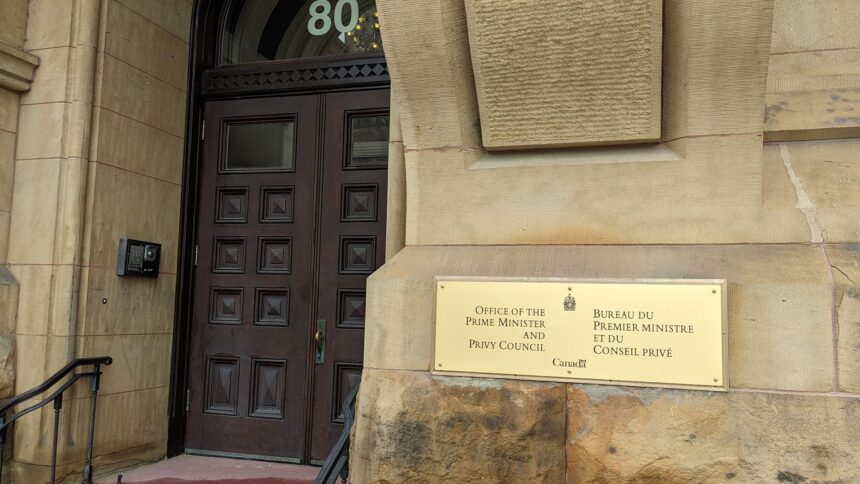The lawyer for half a dozen plaintiffs in a lawsuit over “biological experiments” they were subjected to says the federal government’s attempt to dismiss the case is “offensive.” Steven Cooper says a federal government statement supplied to APTN News is “more of the same.” “I’ve been litigating against the federal government for virtually the entire 35 years of my practice, and they seem to have just a rubber stamp that says, not us, not us, not us. And it really gets, tiring,” says Cooper. “It’s offensive because in the end, they eventually come around and recognize that it in fact was them.” The plaintiffs, including former Nunuvut premier Paul Quassa are suing Canada for permitting and facilitating non-consensual experiments on Inuit in the late 1960s and early 1970s. The claim filed in the Nunavut Court of Justice in 2019 centers on Canada’s participation in the program with its goal of studying racial characteristics through invasive and non-consensual procedures with the oversight of a federal committee in Igloolik, Nunavut. Cooper says the government’s attempt to have the case dismissed on technicality shows the government doesn’t want the case “adjudged on its merits.” “Why? Because it is the federal government of Canada allowing the Inuit in Igloolik and probably other places to be treated like lab rats or monkeys as Paul Quassa has made reference. Yeah. It doesn’t look good on the federal government.” Quassa called on Prime Minister Mark Carney to “make this right and stop victimizing me and other Inuit who were treated as lab rats for the benefit of an unexplained biological program.” APTN contacted the Prime Minister’s Office for comment and was passed to Crown-Indigenous Relations and Northern Affairs. “While Canada is named in the litigation, there is no evidence that the federal government was involved in conducting the research,” says Kyle Allen, director of communications for the department. “We have taken steps to add those who did conduct the research to the litigation. Given the lack of evidence regarding Canada’s involvement, we have made the decision to file the motion on limitations.” Cooper says Canada’s motion, attempting to have the case dismissed argues that too much time has passed since the incidents. The federal government, he says, has been trying to argue third parties-the universities who carried out the experiments-are responsible. An amended statement of claim from 2021 notes that because the people carrying out the experiments were not Inuk or Nunuvummiat and “apparently represented Canada,” the plaintiffs believed they had no choice but to submit to the experiments. “So, you know, you want evidence? Do a Google search. Let’s just do the International Biological Program. Type in the National Research Council, which was one of the appointees of the federal government to oversee not just the funding, but the operation of the program in Canada,” Cooper says. The program focused on the productivity of biological resources, human adaptability to environmental change, and environmental change, according to the National Academy of Science in the United States. The plaintiffs’ statement of claim filed in 2019 says they were subjected to skin grafts, exposure to extreme cold without adequate clothing and tests with sharp objects to assess their ability to withstand pain. Some also had “objects inserted into body cavities” according to the claim. The experiments were often carried out in “unsanitary conditions” and many plaintiffs suffered pain and infections. Cooper says the government denying its involvement and attempting to dismiss the claim so soon after settling the Indian hospitals case doesn’t make sense. In June, the Federal Court approved a class-action settlement for people who suffered abuse at federally run ‘Indian hospitals’ following out-of-court negotiations with Ottawa and Indigenous survivors. More than a billion dollars is available to compensate an estimated 100,000 Indigenous survivors of the former segregated medical and tuberculosis-treatment facilities. The plaintiffs in the Igloolik experiments case, meanwhile, are asking for $1.1 million each. “This is a small money file…it involves six plaintiffs that could easily settle for a modest sum,” Cooper says. “But rather than dealing with all of that, the federal government has been obfuscating and trying to deny liability and pass it on to institutions that don’t have any direct responsibility in the law probably, and which is why they’re not defendants.” Cooper says there’s a risk that they could lose with the government’s recent application when it’s heard in the Nunavut Court of Justice next month. “…which would be yet another stain on the federal government, but not one that happened decades ago, one that’s happening right now under Prime Minister Carney,” Cooper says. “We want to settle this, but you don’t want to settle it? Let us go to court and convince the judge of your responsibility. Don’t hide behind the technical defense, Mr. Carney.” Continue Reading
It doesnt look good on the federal government: says plaintiffs lawyer in Inuit experiments case

Leave a Comment










